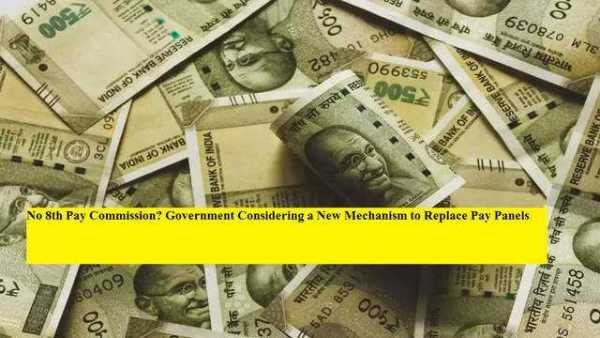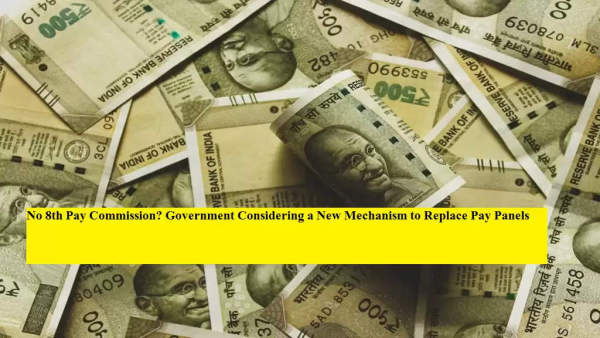No 8th Pay Commission? Government Considering a New Mechanism to Replace Pay Panels


The possibility of the government ending the pay commission system and replacing it with a new mechanism has raised concerns among millions of central government employees and pensioners. With no official announcement yet on the 8th Pay Commission, speculation continues to mount about the government’s approach to salary and pension revisions post-2025.
What is the Current Status?
Government’s Stance:
- Minister of State for Finance Pankaj Chaudhary stated in Parliament that no proposal to form the 8th Pay Commission is under consideration.
- The term of the 7th Pay Commission, implemented in January 2016, concludes in December 2025.
Exploring Alternatives:
- Reports suggest the government is considering a "new mechanism" for revising salaries and pensions for central government employees and retirees. This would potentially replace the traditional pay commission system, which operates at 10-year intervals.
Employee Unions’ Concerns:
- Organizations like the National Council (Staff Side) Joint Consultative Machinery (NC JCM) and the All India State Government Employees Federation have demanded the immediate formation of the 8th Pay Commission.
- Union representatives have indicated plans for nationwide agitations if their demands are not met.
Potential New Mechanism
Although details are scarce, a performance-linked or inflation-adjusted framework could be introduced. This system might include:
- Annual or Periodic Reviews: Salaries and pensions adjusted more frequently based on economic conditions and inflation indices.
- Performance Metrics: Linking pay hikes to individual or departmental performance metrics.
- Simplified Structures: A focus on streamlining allowances, pensions, and benefits without the need for a decadal overhaul.
Impact on Employees and Pensioners
Advantages:
- More frequent revisions could ensure salaries and pensions remain aligned with inflation and economic conditions.
- Simplification may reduce bureaucratic delays in implementing recommendations.
Challenges:
- Performance-linked hikes could introduce subjectivity and potential disparities among employees.
- The absence of a standardized pay commission may lead to confusion and dissatisfaction among employees.
Unions' and Employees’ Reactions
The delay or absence of the 8th Pay Commission has led to widespread dissatisfaction:
- Demands for Clarity: Employee unions have urged the government to provide clear guidelines on the proposed mechanism.
- Nationwide Agitation: The All India State Government Employees Federation has announced protests in 2025 if the government fails to address their concerns.
- Calls for Fairness: The NC JCM emphasized the importance of ensuring fair and transparent pay revisions for all employees, irrespective of the mechanism adopted.
Conclusion
The government’s consideration of a new mechanism instead of the 8th Pay Commission marks a significant shift in approach. While it promises a more dynamic system, its effectiveness will depend on clear guidelines, transparency, and fairness.
For now, central government employees and pensioners await the Union Budget 2025 for potential announcements on this crucial issue. The next steps will be critical in determining whether the new mechanism can effectively address their concerns or if traditional pay commissions remain indispensable.

